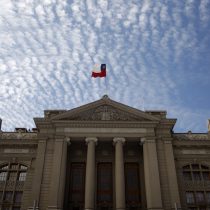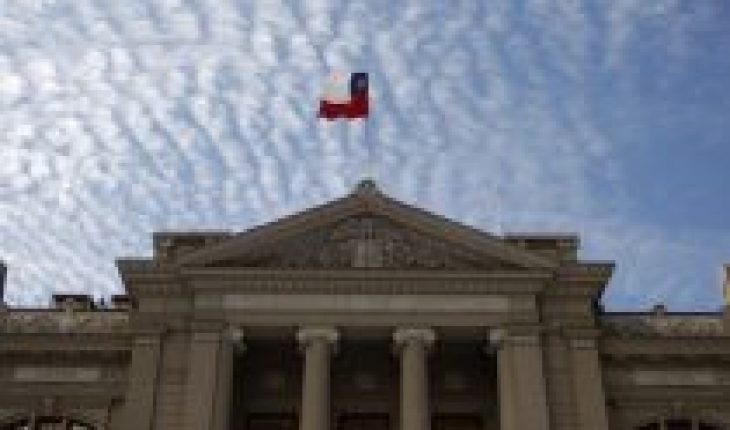
It was weeks of expectations that came to an end this Thursday. In divided judgment, the Second Chamber of the Supreme Court decided to grant partial access to the Public Prosecutor’s Office to the emails of the Ministry of Health (Minsal) in the context of the investigation for deaths by covid-19.
The decision of the highest court generated reactions. For former health minister Jaime Mañalich’s lawyer Gabriel Zaliasnik, the Supreme Supreme’s ruling “is the right thing to do.” “It is a decision attached to law, which I believe reveals the rationale that Minister Paris had in opposing it at the time. The Public Prosecutor’s Office in this regard was not acting subject to the specific procedural rule invoked by the minister,” he told Emol.
He added that the highest court’s ruling “claims against criticism from some at the time, the action of Minister Paris. He acted in accordance with the law and the Supreme Court in that regard has given him the reason.”
In the meantime, he argued that what had happened should “invite” National Prosecutor Jorge Abbott to reflect on the public prosecutor’s action: “This is something we have said for quite some time to the national prosecutor, Mr Abbott, who must review this situation; that there are bad practices, that the Public Prosecutor’s Office must take over.”
Eventually, he criticized that “the national prosecutor is good for straw in the other’s eye and not the beam in his own eye. And it seems to me for the same reason that when the Supreme Court rules and realizes the rationale that Minister Paris had to oppose, I think it at least invites the national prosecutor to reflect.”
It should be remembered that the Supreme Court’s decision was also valued by the Minister of Health, Enrique Paris. During the delivery of the Covid-19 report, the Secretary of State was consulted on the matter, and while noting that he would “not talk about triumphs or defeats,” he stressed that “the Supreme Court has acted very correctly.”
“What we asked was for the Supreme Court to order us which and what kind of emails to deliver. We believe it is the right thing to do, because the first request was to deliver everything, blindly, without any indication, or any special dedication to certain types of emails. We saw that delivering everything jeopardizes national security and above all contravened the law of patient rights and duties.”
Navarro targets member lawyers
Different is the opinion of Senator Alejandro Navarro, complainant in the case, who emphasized that two of the three majority votes belong to member lawyers (together with Minister Carlos Konsem.ller voted the member lawyers Jorge Lagos and María Cristina Gajardo) while those who were for the total delivery of information, are titular ministers (Haroldo Brito and Jorge Dahm).
“We will review (a) the member lawyers, because an important part of the Courtroom was about to deliver the emails for transparency, so that the objective of seeking justice is fulfilled and there is no impunity. I regret the Court’s decision, but we will continue to insist, at all levels, for transparency in the pandemic process, because impunity will not exist,” he added.
He also argued that “the refusal to deliver the party concerning the purchase of fans puts us in a disjunction. The Minister of Bolivia was dismissed because he paid on price for the fans and we will not know, therefore, how much they cost the State of Chile. That’s not national security, it’s a national budget.”
Celis (PPD): “Let’s get to know the emails”
In other reactions from the political world, the chairman of the House Health Committee, Deputy Ricardo Celis (PPD), noted that “I think it is appropriate because it will not be possible to say that there are sensitive data that have to do with national security”.
“What Chile wants to know is whether there was manipulation of information by former Minister Mañalich’s cabinet. What the Supreme Court is pointing out points in the right direction that we’re going to know the e-mails. That’s the bottom line,” the MP added.
For Celis, the Government’s argument that there would be sensitive information in those emails is a “defence excuse. Always the objective of the prosecutor Armendáriz was to search for information as to whether or not information data had been manipulated regarding deceased and infected patients.”
Deputy Soto (PS): Supreme Ruling Represents a “Backtrack”
A different opinion is that of Socialist Party (PS) MP Leonardo Soto, who considered the Supreme’s ruling to be a “backtrack on the road to transparency our country had experienced.”
In the parliamentarian’s view, the brief “has two very serious problems. First, it significantly limits the powers of the Public Prosecutor’s Office to conduct investigations into corruption, public negligence, etc. It places a very large limit on it, an obstacle to the investigation in circumstances that this institution is the only power to be able to search when crimes have been committed in the public administration.”
Soto also argued, “allow a partial reservation of the information in the e-mails, which can certainly be attainable when there are reasons for national security, but what seems unreasonable is that the Supreme Court has given him the power to decide which emails are subject to the Ministry of Health itself.”
According to the Deputy, “the Supreme Court should have handed over criteria to the Minsal in order to discriminate what is national security and what should not and should not have required that such a record be displayed but by crossing out the names of the people involved or the circumstances that might affect the security of the country.”
Deputy Torres (DC): “The ruling does not establish precise criteria”
In addition, Mr Victor Torres (DC) argued that “I would have liked the Supreme Court to have established the possibility of broad access to such emails, understanding that there is information that can be very useful both for this investigation and also for other offices that have been questioned, linked for example to the purchase of inputs and other elements”.
“The ruling, in addition to giving the Ministry of Health ample possibilities to determine what may or may not be considered national security, does not establish criteria that are more precise and from that perspective, we also have doubts that would happen if there was an investigation that requires that information that cannot be delivered today,” he added.
In that regard, it considered that “it would have been optimal for the Supreme Court to establish a formula, so that all emails could be delivered and those paragraphs determined as sensitive data or possibly those that could involve national security could be tailed”.
“In this way we could facilitate the prosecution’s investigative process and also meet transparency standards which is what one would expect in a situation like the one we are living in this pandemic which, as we have insisted, has generated an impact on the credibility of what was the management of the ministry of health while former Minister Jaime Mañalich was in charge and obviously his implications , which he may have had both in the amount of contagion, as well as in the deceased,” he concluded.





